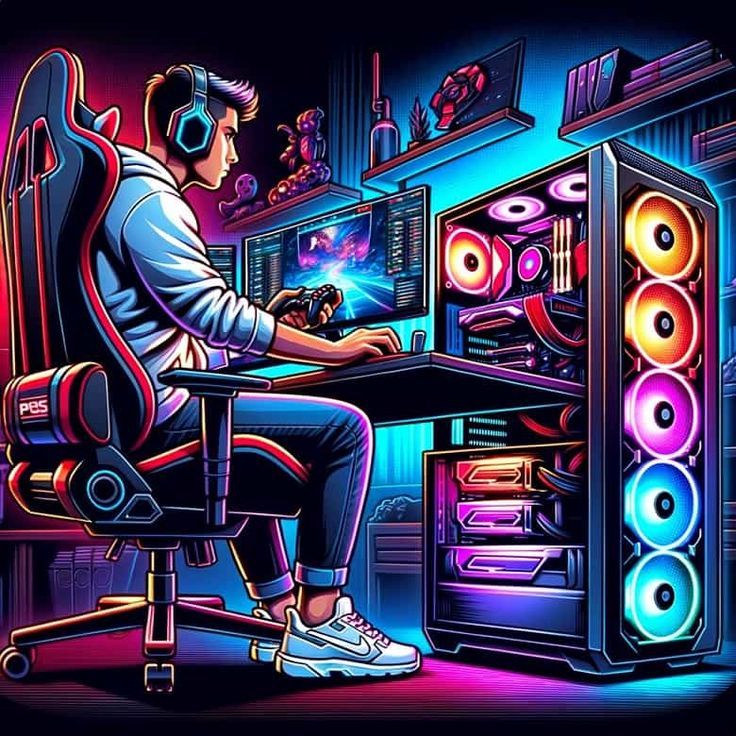Video games have evolved from simple pixelated screens to , story-driven worlds that rival the best of movies and literature. As this medium has grown, so too has the importance of representation within it. Representation in video games—whether through character design, storylines, or themes—matters more than ever because it shapes how players relate to the characters they control, the worlds they explore, and the narratives they experience. Let’s explore why this topic is so crucial for both the gaming industry and its diverse audience.
1. Reflecting Real-World Diversity
The gaming world, just like the real world, is diverse. Whether it’s race, gender, sexuality, disability, or culture, players come from all walks of life. When games feature diverse characters, they allow players to see themselves reflected in the stories they enjoy. This representation matters because it helps individuals feel seen, understood, and validated.
For years, video games have been critiqued for their lack of diversity. Most early titles featured predominantly white, male protagonists, with limited representation of women or minority characters. This meant that many players couldn’t relate to the avatars they controlled. But today, developers are increasingly recognizing the need for diversity. Games like The Last of Us Part II (with Ellie, a queer protagonist), Assassin’s Creed Odyssey (which allows players to choose between male or female protagonists), and Celeste (which features a character with mental health struggles) are just a few examples of how the industry is making strides in representation.
2. Creating Empathy and Understanding
Games provide players with a rare opportunity to experience a world through someone else’s eyes. When developers include characters from different backgrounds, players are encouraged to walk in the shoes of others, fostering empathy and understanding. For instance, a game like Life is Strange allows players to experience the struggles of a young woman navigating complex social issues. In The Outer Worlds, players can choose to play as a character from various ethnic backgrounds, giving players the chance to understand different cultural perspectives within the game’s world.
This kind of storytelling can lead to greater empathy for people who may not share the same experiences as the player, helping to break down stereotypes and promote tolerance.
3. Empowerment and Representation for All Players
Representation isn’t just about acknowledging diversity for the sake of it; it’s about creating empowering narratives for all players. When individuals see themselves as protagonists—whether they’re a woman, a person of color, a member of the LGBTQ+ community, or someone with a disability—it sends a powerful message that they too can be heroes in their own stories.
For example, games like Horizon Zero Dawn put a strong, skilled female protagonist, Aloy, at the forefront of the narrative, showing that women can be action heroes without conforming to outdated stereotypes. The Last of Us Part II offers a nuanced portrayal of LGBTQ+ relationships, and Uncharted: The Lost Legacy presents strong female characters who drive the plot forward. These representations not only empower players but also challenge the old, limited notions of who can be a hero in video games.
4. Driving Industry Innovation
Representation in video games doesn’t just matter on a personal level—it also drives industry innovation. As more diverse characters and stories emerge, the need for new types of gameplay and narrative structures arises. Developers are now tasked with creating experiences that speak to different audiences and explore varied cultural contexts, which in turn pushes creativity and innovation in game design.
Take Spider-Man: Miles Morales, for example. Featuring a Black, Latino superhero as the main character brought a fresh perspective to a well-established franchise. It wasn’t just the cultural background of Miles Morales that was explored, but also themes related to community, identity, and social justice. These themes resonated with a wider audience and offered something new to the superhero genre.
5. Challenging Traditional Stereotypes
Incorporating diverse representation in video games also provides an opportunity to challenge harmful stereotypes. In the past, characters from marginalized groups were often pigeonholed into roles that reinforced negative ideas: the “helpless woman,” the “token Black friend,” the “sidekick.” But now, developers are creating multi-dimensional characters who defy these clichés.
Games like Overwatch and Street Fighter feature characters of various ethnicities, genders, and sexual orientations, each with their own backstories, motivations, and complexities. These characters are not defined by their labels but by their unique personalities and strengths. By breaking down these stereotypes, games encourage players to think more critically about how they view others in the real world.
6. Improving Gaming’s Global Reach
The global gaming market is more expansive than ever before. As gaming continues to grow, it’s important for developers to create content that resonates with audiences worldwide. Representation plays a significant role in this expansion. When characters and stories reflect different cultures and backgrounds, games become more relatable and appealing to players from diverse regions.
Consider games like Genshin Impact, which features a variety of characters from different cultural backgrounds, or Jade Empire, which immerses players in a world inspired by Chinese mythology. These games not only offer exciting gameplay but also introduce players to new cultures, traditions, and experiences, making gaming a more inclusive and global medium.
7. Why Representation Matters Beyond the Screen
Representation in video games is about more than just the characters you play—it extends to the people creating the games. The diversity of developers is equally important in ensuring that a wide range of voices and perspectives are heard. As more women, people of color, and LGBTQ+ individuals break into the game development industry, it becomes increasingly likely that we will see more authentic and diverse stories told in future titles.
Games are made by people, and the more varied the backgrounds of those people, the more varied and interesting the games will be. Supporting diverse developers and creators is key to continuing the progress toward better representation in the medium.

